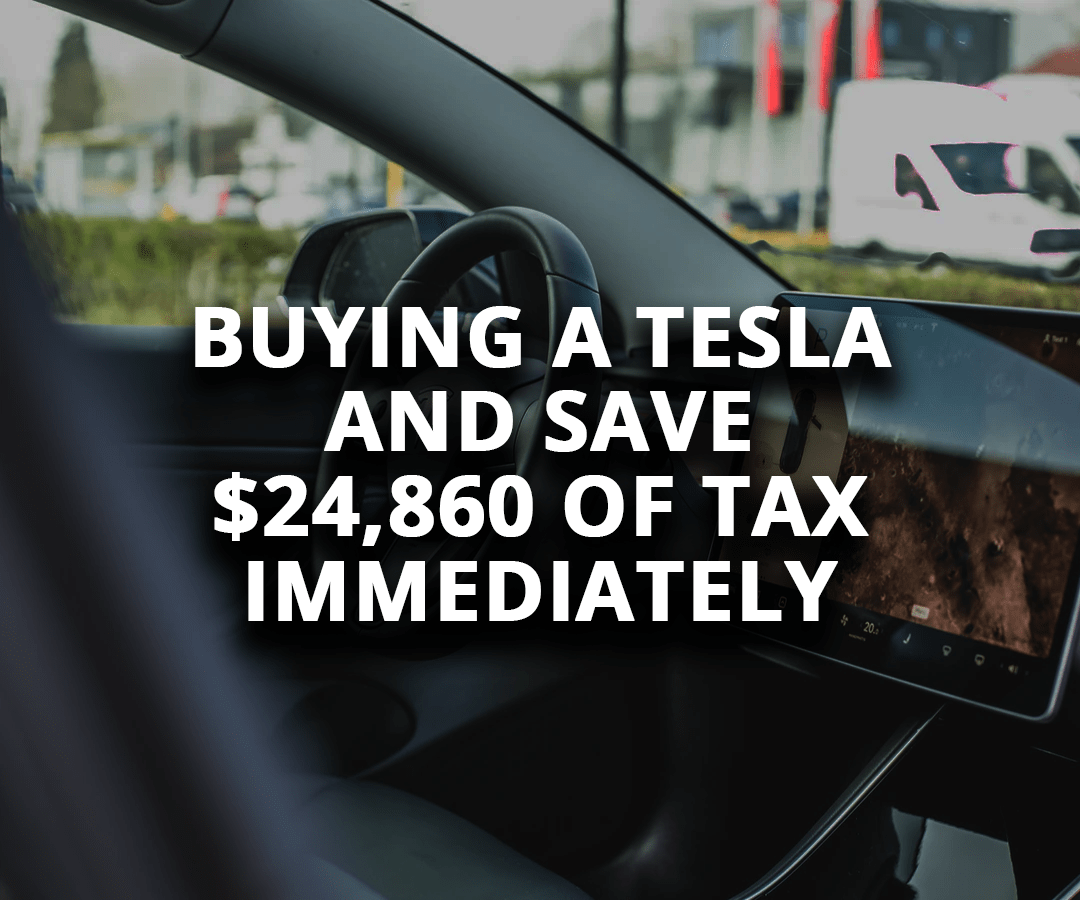We had been helping many real estate agents setup corporations in the past few months.
Many of them are high income earner, high commission income with little deductions.
One thing we suggested to those who are interested in buying a new car is to purchase an zero emission vehicle.
Buying a new car can be complicated because you’ve got to set up a budget, decide any add-ons you want, look into this encompass insurance review, and think about potential repairs that will be needed further down the road (no pun intended). Well, a zero emission vehicle can actually save you some money which is always attractive when you’re on the market for a new one.
(As a disclaimer, I am not a big proponent to buy a car to get deduction. But if you are required to buy a new car anyway, you may as well take advantage of this deduction.)
A zero emission vehicle, if purchased before 2024, allows the taxpayer to get a bigger deduction than buying a regular car.
Of course, this includes Tesla as well. 😊
Many of these top producers decided to get a new car so that they can get a bigger write off the year they purchase the vehicle.
And here’s how it works:
If you drive a car to earn business income or property income, you’re eligible to deduct the business use of the vehicle expense.
Typically speaking, when you purchase any vehicle, you can claim the annual wear and tear of the purchase price of the car (up to a maximum of $30K plus HST).
The annual wear and tear deduction is called capital cost allowance in tax terms.
The annual rate of deduction is usually 30% on passenger vehicles, exception applies to first year of deduction.
You may spend $22K on a used vehicle, CRA would take the $22K as the starting point of the CCA calculation.
You may spend $60,000 on a new Lexus, CRA would only count $30K plus HST as the starting point of the CCA calculation.
Using an example to illustrate, you purchased a $60K new Lexus in 2021 and you only drove 80% of the time for business purpose:
1st year deduction = $30,000 x 1.13 x 30% x 80% = $8,136
2nd year deduction – you start with the amount that has not been depreciated first and apply the 30% rate decided by CRA = ($33,900 – $30,000 x 1.13 x 30%) x 30% x 80% = $5,695
Year 3, 4, 5, 6…and so on…are all the same… amount of deduction is gradually going down every year.
Now… when you buy a zero-emission vehicle after March 18, 2019, and you DON’T take any government rebate, you will get bigger deduction. Here’re the difference.
Maximum capital cost is increased from $30K + HST to $55K plus HST to start off.
And…the capital cost allowance that you can claim annually is…wait for it… 100% for vehicles acquired after March 18, 2019 and before 2024.
What?! 100%?!
Instead of buying a Lexus, you’re buying a Tesla Model 3. This is an emission free vehicle, and again, you use the vehicle 80% of the time to earn business income.
1st year deduction = $55,000 x 1.13 x 100% x 80% = $49,720
That’s it. No year 2, no year 3, no year 4 deduction. Done and over with!
This can be translated to an immediate tax benefit in year 1 of $20,792! (assuming you’re 50% marginal tax rate)
Of course, there’s some other impact when you eventually sell the car, that’s a topic of another day!
Now, when you are off to shop for your next car this year, maybe there’s just a bigger incentive for you to pick a zero-emission car over a regular car!
Make sure you consult with a qualified accountant before you start shopping!
Until next time, happy Canadian Real Estate Investing.
Cherry Chan, CPA, CA
Your Real Estate Accountant






Shawn
Is this only for incorporation or self employment is also able to use this?
Cherry Chan
You can take advantage of this whether it is in the corporation or in personal name.
You should consult with a professional accountant to understand the difference as there’s other tax implication owning cars in corporation.
Jayson
I’m interested in realtor incorporation. Do you do provincial incorporation or federal incorporation?
Cherry Chan
You are welcome to reach out to our office and we can help you set it up 🙂
James Anderson
Hi Cherry,
I’m a firefighter and will soon own 2 investment properties (one of which I will manage 25kms away), if I were to incorporate before I finish purchasing these could I write off my tesla cybertruk when it comes out in 2 years? Does this work for someone
Ben
Does the CCA you can claim depend on when in the calendar year you buy the car? Is it prorated ?
Thx!
Kerren
This is so interesting, thanks for this information. My question is: If you buy a 2019 used / second hand zero-emission vehicle now in 2021 – will you still be able to claim the 100% deduction of the purchase price? Many thanks
Andrew
Hi Cherry,
Do you happen to know a CPA that could help guide me & better understand this process. Extremely interested, thanks!
Anthony
Hello,
Thank you very much for the detailed article.
Could you please elaborate on this: « Of course, there’s some other impact when you eventually sell the car, that’s a topic of another day! » ?
When will recapture be in effect? Is it only if the car is sold for more than $55,000? Or?
Thank you and all the best for the new year!
Anthony
Cherry
If the car is sold, the sale price in relation to the full purchase price you paid x $55K x business use % would have to be taken into income (also known as recapture).
Amount of recapture is purely based on the factor mentioned above. The lesser the business use % the lesser the recapture would be as well.
John
Do you have to pay recapture costs if you do not sell the vehicle, rather you keep it for personal use? And can you then buy a new Tesla and claim the business deduction again in a future year??
Cherry
Recapture is only triggered if you sell or stop using the vehicle completely for business.
Sherwin
If you have a corporation, does this class 54 not have to be a deduction that the corporation makes instead of you personally? So you buy the car under the corp, and therefore, only 12.2% multiplied by the 55K+HST. It seems you are proposing to do this on the personal side. How do you do that if you have a corp?
Cherry
Hi Sheriwn, thanks for being here. Unfortunately this isn’t the right platform where I would be able to advise you about your personalized situation without knowing the specifics. For any questions or consultation, please contact our office at 416-548-4228 or email us at admin@cccpa.ca and we will be sure to take care of you. Thanks!